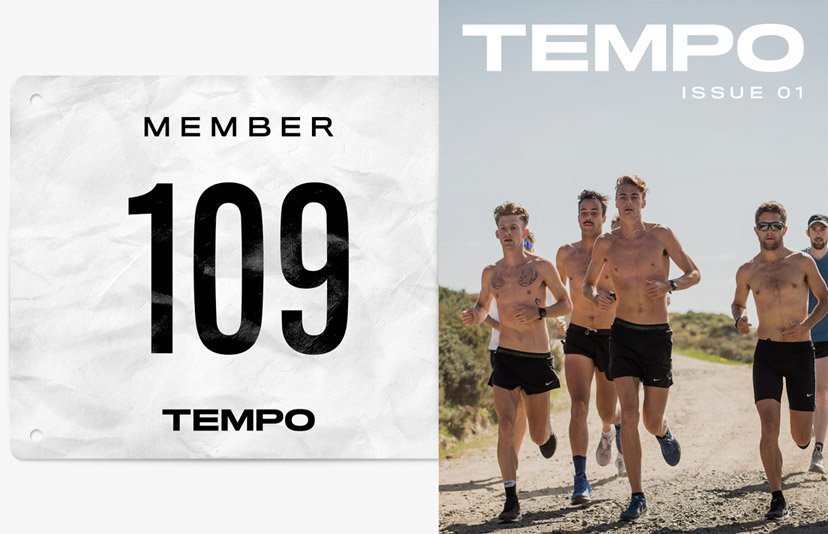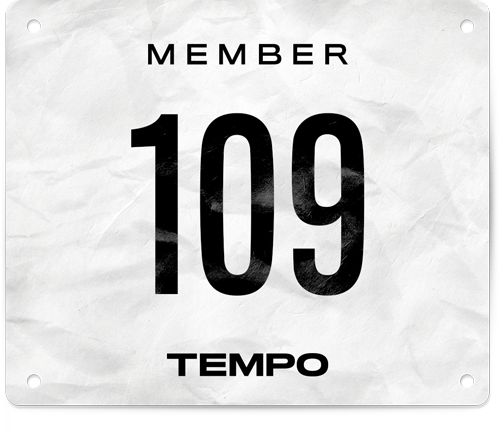Lifestyle
Markus Torgeby : The patina of perfection
The extraordinary life of Swede Markus Torgeby
Those sharp blue eyes flash again. The words from our question are digested and the response pondered. He strokes his weather-beaten face, touching a beard that is clearly more practical than fashion statement, and his brow furrows. The electricity rushes around Markus Torgeby’s brain. His hands become animated as he responds. We hang on his every word.
But this is not an audience with a winner or a record breaker. These words come from a runner who never fulfilled his shining potential; as with so many, there were parts of the puzzle that were missing.
Sweden’s current status in the world of distance running is of a second tier nation. While it could field the world’s greatest milers back in the 1940s, recent decades have seen its western neighbour assume bragging rights; in 2018 one (precocious) Norwegian family boasts more world class ability than all of Swedish running. In this context of diminished success, the young prospects that do emerge are all the more valuable.
Markus Torgeby was one such talent. We came across this singular character a few years back at the Fjällmaraton in Sweden’s Jamtland, where he was a captivating guest speaker at this collection of trail races. That summer, it seemed his name was on the lips of everyone we met. ‘Have you met Markus?’ ‘You must speak to Markus.’ Time passed, and the fascination with this man and his story deepened. This outstanding young runner who turned his back on ‘regular’ life at the age of 20 to live in a teepee in the mountains for four years. Why? How? And what happened next?
"I see it in my daughters now, and also with hindsight, see that I was the same; as humans we need friction in our lives, something to battle against. That’s why moving into the woods was part of a solution for me. It’s funny; every house in Sweden is set to 21 degrees Celsius, but that’s too comfortable, it creates no friction. I remember waking up and it being -40 degrees in the winter. My face would be cold and I’d have to rush to light a fire in my teepee to stay warm once out of bed. Stripping your life back to your needs focuses you. Decisions were based on those, and life became so simple, so that I could focus on running and experiencing that fully".
Torgeby speaks thoughtfully but straightforwardly. His instincts are to explain and understand, not to mystify and mythologise.
Sport is a fickle beast that celebrates winning above all. For many the heroes are those who are glorious, those who win. We aim to emulate them, to learn from their achievements, but as fans and athletes we can often learn more from those who don’t make it to the top. Torgeby will be remembered as a talented runner who never quite fulfilled his potential; it is his very ‘failure’ that is his legacy. Writing the book, he explains, was a cathartic process to make sense of his struggles, and in this struggle there are lessons for everyone.
"Stripping your life back to your needs focuses you. Decisions were based on those, and life became so simple, so that I could focus on running and experiencing that fully"
Markus Torgeby
Born on an island near Gothenburg, Torgeby enjoyed a typically Swedish outdoorsy childhood, both sporty and close to nature. When he was 10 his mother was diagnosed with multiple sclerosis; around the same time that Torgeby, already known within his ice hockey team as a strong runner, was urged to take part in his first running competition. He showed immediate promise, prompting an invite to a local club’s evening training session, and Torgeby soon became immersed in a passion for middle distance running, which he argues today was partly to escape the pressure that his mother’s illness put on his life. But a lack of support system around him, his mother’s illness and a coach with mental health issues led to Torgeby over training and underperforming.
"With my mother’s illness, I was forced to be selfish simply by choosing to compete. There’s a romantic image of being a carer, but the reality is different; there’s always a feeling of guilt. The forest and running were survival for me; that’s why competing was complicated.
People around me just didn’t realise the external challenges I faced – especially not my coach, who just told me to push harder, setting me intervals seven days a week. Physically you couldn’t see I was struggling, but I was training twice daily, living on school lunches, making my own way to and from the ferry to school, while still caring for my mum. All of this was part of the overtraining. I looked good, but was completely exhausted".
Sat at the table of his self-built house down a dirt track, Torgeby recounts a life spent on the fringes of society. His family - Frida his wife and their three blissfully unselfconscious daughters - are in the midst of the summer holidays, unfazed by the interrogation He answers candidly as we probe into why this individual has captured the attention of the global running community with a book that is now a bestseller translated into multiple languages. From the early success, to the over training and abusive coach, through to moving into the woods it’s a simple yet deep documentation of Torgeby’s life, his ‘patina’, with lines of hardship etched onto his skin today.
"Physically you couldn’t see I was struggling, but I was training twice daily, living on school lunches, making my own way to and from the ferry to school, while still caring for my mum.
All of this was part of the overtraining. I looked good, but was completely exhausted".
Markus Torgeby
When Torgeby says that today’s version of him has a much easier time than the one from 15 years ago, it is clear that the years spent in the teepee have given him a perspective on life normally only found in people much older than his 42 years. He tells us about taking his daughters for a run the previous day; when they reached the river, they jumped in and floated downstream for a kilometre, his aim being to consciously create a moment and a memory that they can call upon in their futures when they are stressed.
This is almost at odds with the juxtaposition at the centre of Torgeby; he’s both a reclusive mountain man that proclaims the joys of the simple life, a basic existence that focuses on physical connection, yet there’s still the competitive athlete within him, staunchly dedicated to speed and splits, still today drawing a distinction between running and training.
"The last session I did was about three months ago. A 25 km fartlek. I like those a lot. I was planning on racing one of the trail races this week but after that session I was focused on building my house and did not feel prepared".
For someone who ran 250 km a week for over 10 years, the idea of toeing a startline without exacting preparation can be petrifying. "For me, running is the ultimate screening for the body, when all weaknesses are revealed".
Markus’ pace changes when we leave his kitchen table, with a chorus from his family that they will carry on regardless, without any pressure to make it back for dinner. We head out the door and jump into his well-used Subaru, a flicker of energy is undeniable in his eyes as we race backwards down his long driveway on the gravel road that leads to his house in the woods. We’re going to visit the location of his second teepee, the spot where he spent three of the four years, where – due to the fatigue of simply surviving – sitting still had much more of a purpose than it does normally. As we’ve come to observe, he’s never not in motion.
There’s another change in pace as we trot into the forest to see the remains of his teepee. Canvasless now, the skeleton of the frame sits untouched in the woods. Though it remains a short walk from the closest track, even the coat and synthetic sleeping bag are still hanging. It is now that we see the real Torgeby – an individual that doesn’t care for flourishes. It’s clear that family life has meant some changes for him, often referred to him and his wife Frida as ‘returning to the real world’ but this basic way of life is ingrained within his character. So much so that he is soon explaining to us exactly how to light fires in different conditions, how to wash and dress during the coldest months, where it can drop to -40. "It was so easy in winter," he explains, "As it was just a question of basic needs, I had such focus to train that I could sleep 10 to 12 hours each night. It’s a tough call to be a pro athlete; laziness is needed outside of the 250 km per week". Even back at his comfortable house you can still see that connection through the modern, smaller teepee that sits in his garden, where him and his wife had slept that night.
It’s only later as we look at the view over the lake close to his old teepee site that Torgeby admits that this way of life might not have been conducive to physically getting the best performance out of himself. "Maybe that was a weakness. I mean, it was a tough way of life. I had to make decisions all the time that, if wrong, would have had great impact on me. I almost lost my toes a couple of times. After a period of training in Tanzania I learned to imitate their top athletes, emulating how they would run, sleep, eat, and run. There was nothing else, and they were happy to not do anything between training sessions. I lived that way – maybe taking it too far, but it taught me a lot. If Tanzanians succeed, they can build a house and put food on the table; when it comes to me, I have to look further for more motivation".
The ease with which Markus covers the ground in the forest is evident, despite his background of racing on the road and track. He knows how to navigate the terrain with a surefootedness that he’s learnt during the seasons, making decisions that were fundamental to survival. We head back to the car, with him quizzing us as much as we question him, offering us insight and coaching advice. For someone who lived off-grid for so many years, he has a mind that is crammed with training know-how on everything from middle-distance sessions to running economy and lactate thresholds. We end making plans to run a relay together next summer, wearing his latest project, authentic Torgeby kit.
"When I moved out into the forest I still had dreams of making it, but I’m now 42 and not 28. I still find inspiration when I run, and that blood you get flowing shouldn’t just give you energy and oxygen when the heart pumps faster - it’s also good for the head. Let it circulate with a lot of speed; it’s a good thing as there are thoughts in the blood".


